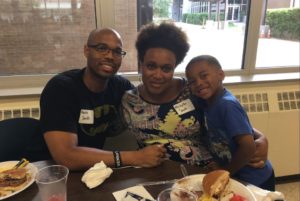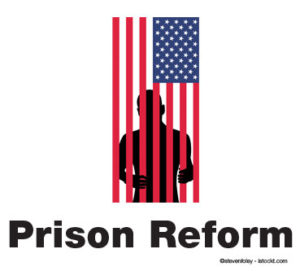The second theme of Catholic Social Teaching is Call to Family, Community, and Participation. Catholic Social Teaching teaches us that the institutions of the family and the community are vital to the health of society and the dignity of humans.
The Church teaches that people have the right to participate in society, and seek the common good. Subsequently, society has the responsibility to uphold institutions like marriage and the family. These topics, discussed in Pope Francis’ exhortation, Amoris Laetitia, are inspired by Biblical teachings like Genesis 1:27, which says that God made man and woman to be together in union, and Genesis 2:18, which teaches, “It is not good for the man to be alone.”
Marriage and the Family
The first issue covered in this teaching is that regarding marriage and the family. The Church teaches that marriage is a sacred institution between one man and one woman, forming the bedrock of society. The Catholic Church believes that the well-being of a society is directly related to the strength of marriage and the health of the family. It is also the Church’s view that the government should only recognize marriage as such; that civil marriage is best when it is only between one man and one woman. Same-sex marriage, while now considered to be a settled issue, has been a point of contentious debate over the last two decades.

President Bill Clinton signed the Defense of Marriage Act into law in 1996, which limited federal recognition of marriage to only opposite-sex marriages; at the time, no states recognized same-sex marriage. That number was 14 in 2013, when the law was struck down, meaning that the federal government had to recognize those marriages. In 2015, the Supreme Court struck down all state-level bans on same-sex marriage, making it legal nationwide. The United States Conference of Catholic Bishops filed statements (known as friend-of-the-court briefings) with the court opposing same-sex marriage in both 2013 and 2015. Democrats were generally supportive of both rulings, and have supported nationwide same-sex marriage since 2012.

Some Republicans have viewed it as a states’ rights issue, believing that each state could make its own laws regarding marriage, but the official party platform declares that the federal government should retain the traditional definition of marriage. On this issue, Republicans are largely in line with Church teaching, supporting and strengthening the traditional institution of family and marriage.
Voting Rights
The Church also teaches that everyone has the responsibility to act toward the common good, love their neighbor, and participate in society. The right to vote is essential in order to participate in one’s community, and in the United States, it is a constitutional right. However, various efforts have been made across the country to alter voting processes, make voting more difficult, and make it more accessible.
Both parties have engaged in practices like gerrymandering, where legislative district lines are drawn to favor a certain party, but that is about as far as the similarities go. Democrats are strongly supportive of measures that make voting easier, such as increased access to voter registration, felon voting rights, early voting, vote-by-mail, and more.

Republicans, on the other hand, have generally opposed expansions of voting rights. In Republican-controlled Alabama, for instance, a law was passed requiring voters to show picture ID when they vote, under the notion that it would prevent voter fraud (an extremely rare occurrence). However, after doing so, the state also closed driver’s licensing offices in 8 out of 10 black-majority counties in the state, leaving them nowhere within their county to obtain a photo ID.
In North Carolina, Republican voting laws cut early voting and changed voter registration processes that disproportionately affected black voters. These efforts go against Church calls for participation in society by actively attempting to limit people’s ability to do so. In this issue, the Democratic Party is more in line with Church teaching than Republicans, because of their support for expanded voter rights, including felon voting rights.
Criminal Justice Reform
Other issues related to community and participation include criminal justice policies. Public safety is key to building strong communities, but overly harsh criminal justice policies can harm communities and take away valuable participants in society for years, and they often re-enter society without proper rehabilitation. The Catholic Church, including the US Conference of Catholic Bishops, has supported an approach to criminal justice focused on harm reduction, rehabilitation, and promoting a culture of life. As such, they oppose mandatory minimums and one-size-fits-all sentencing rules, and they support coupling punishments with restitution, treatment, and mediation between victims and offenders.

Republicans were generally considered the “tough-on-crime” party in 2016 and were largely supportive of retaining current harsh sentencing systems. Democrats, meanwhile, are more supportive of sentencing and bail reform and favor relaxing petty crime and drug laws to reduce the incarceration rate and take fewer people away from their communities. However, both parties are generally supportive of rehabilitation-focused justice systems and programs that reduce recidivism of offenders. In this case, while both parties are making strides toward the Church’s position on criminal justice, Democrats are more supportive of the Church’s positions overall.
Takeaways
This theme of the Catholic Social Teaching covers a broad range of societal topics, but also several very specific political issues, including marriage, justice, voting, and more. In this case, Republicans are strongly supportive of Church teaching on moral and familial issues and are increasingly favoring of Church teaching on criminal justice.
On the other hand, Democrats are most supportive of the Church’s views on voting rights, as well as several criminal justice issues. In Part Three, we’ll take a look at the third Catholic Social Teaching theme: Rights and Responsibilities!






